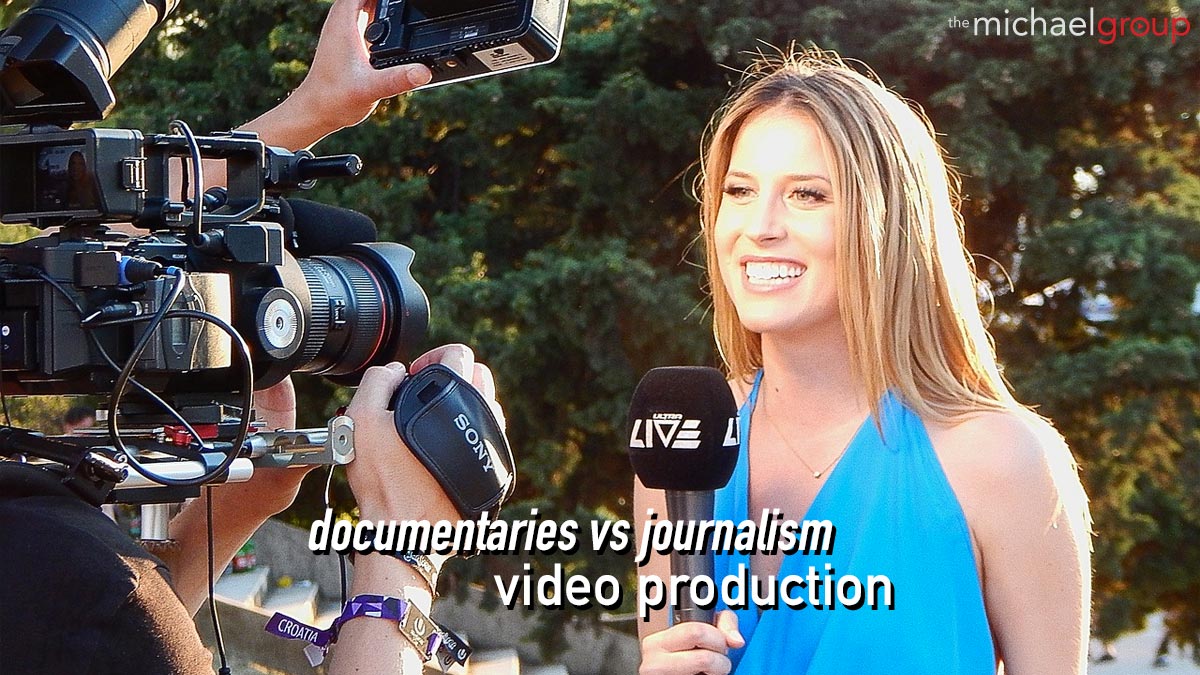
The debate as to whether or not documentaries are a form of journalism has raged for a long time. There are obvious similarities between “traditional journalism” and documentaries, but is it true that, as Ann Hornaday says, “Documentaries aren’t journalism and there is nothing wrong with that.” Or should we consider the views of people like Chuck Todd who say that in the modern world, documentaries have to be considered to be journalism as important issues need a bigger allocations of time than can be afforded by traditional forms of journalism.
Before we decide whether documentaries can be considered journalism, it is important to outline what critics such as Ann Hornaday consider journalism. Then we can discuss the similarities and differences (or perceived differences) between journalism and documentaries.
Traditionalists such as Hornday argue that the role of the journalist is to share information. In other words, the broad definition of journalism as seen by traditionalists is that journalists attempt to present the viewer or reader with objective facts.
It must be noted, however that high-quality documentaries also attempt to present the viewer with factual information on a specific topic.
On the face of it, there are at least some similarities between journalism and documentaries. That is that (unless they are fake news or conspiracies, etc.) both present the consumer with material which is based around some factual scenario (e.g. State interference in other countries elections).
The question is then how do they differ?
Firstly, our conception of what journalism is can often be very traditional. We think of watching the news at 8pm or reading the morning paper or even an online newspaper article. Although subconsciously we know the world is changing, we often don’t realize that it actually is and that our traditional views may be outdated.
Secondly, Hornaday argues that journalists present the reader or viewer with information whereas filmmaker’s try to elicit emotion. Basically, she argues that for a piece to be journalism, it should be objective and not have an aim of stirring emotional responses in people.
This is an extremely neat distinction that would easily separate journalism from documentaries. In this scenario “documentaries aren’t journalism and that’s okay” because documentaries elicit emotion whereas news is objective fact.
The problem with this neat distinction is that things are not always black and white. It is easy to say that journalists present consumers with information and filmmakers try to elicit a response but this ignores the context in which supposed traditional journalists present information. Even newspaper journalists do not report completely objectively because they always carry with them their own ideas about the world which when put into newspaper articles or news broadcasts impact on people’s perception of the facts or elicit responses from people.
An easy way to examine this is to look at the way different events are covered by the media. “Former college swimmer will serve no jail time” reads very differently to “Convicted rapist walks free.” Both headlines and their accompanying articles will be based on the same facts but will elicit different responses from readers. News can’t ever be completely objective because people present the news to the reader as mentioned earlier; people have their own world views and agendas. People choose what is news, what quotes can be used and what parts of the story are relevant and present that to the reader or viewer in what is often short pieces.
The world is changing and if huge stories that are condensed into tiny articles or 90 second segments (as Todd alluded to) which are aimed at eliciting emotional responses from readers or viewers to get clicks or purchases are considered journalism then why shouldn’t we consider longer documentaries with more information journalism? Is it simply because they aim to elicit a response (as traditional forms do as well)? Or is it because they are entertaining and our traditional views tell us that the news is serious?
The Oxford dictionary defines journalism as the activity or profession of writing for newspapers, magazines, or news websites or preparing news to be broadcast. The words “or preparing news to be broadcast” are of particular interest. A documentary can broadcast news and often give much more detail than modern traditional articles, broadcasts or newspapers can and even though they are doing the same thing as modern traditional articles are doing by eliciting emotional responses, they are disregarded because of this and because they are entertaining and engaging.
The idea that journalism has to be boring is dated. There are new ways of consuming news and as such new forms of journalism which include documentaries. However, all forms of journalism should come with the caveat that we should consider the aims of the article, writer or filmmaker because they are all trying to give us the facts as they think they should be seen. At The Michael Group we are immersed in the craft of journalistic and documentary video production – we get the story told in the best way possible.